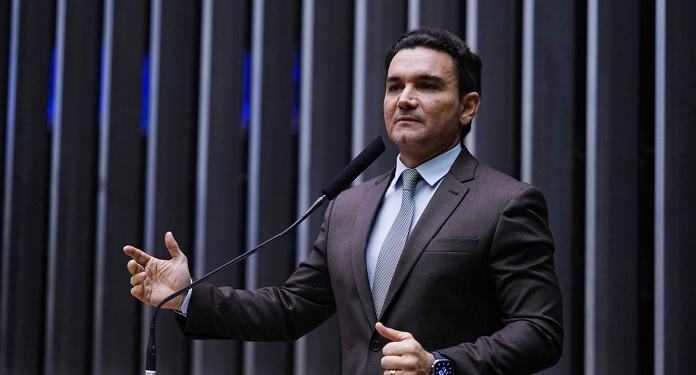The Minister of Tourism, Celso Sabino, said that he will negotiate with the National Congress a part of the collection that will be generated by the sports betting tax, according to the Estadão.
“We intend to act together with Congress, raising awareness among parliamentarians, so that part of the allocation of this contribution, which will be created to tax betting, is directed to Tourism”, said Sabino at an event with the Parliamentary Front of Entrepreneurship (FPE).
According to the minister, amendments have already been sent to the sports betting MP text requesting this allocation.
“In the project, the government does not provide for the allocation (of part of the revenue) to Tourism. We are looking to innovate, presenting alternatives so that a fundraiser is also included”, stressed Sabino.
Regarding the taxation of sports betting set in the MP at 18%, he stressed that it will depend on Congress. “All over the world, this sector is taxed at a much higher rate, 40%, 50%”, he pointed out.
Sports betting tax
First, the taxation of the houses had been set at 16% on the so-called GGR – that is, on the revenue obtained from the games, minus the prizes paid to gamblers.
After a request from the Planalto Palace, however, the percentage rose to 18%, with the aim of expanding the values of the Ministry of Sport.
According to the sports betting PM, the collection was defined as follows:
- 2.55% will be allocated to the National Public Security Fund
- 0.82% to elementary education
- 1.63% to the clubs, in return for the transfer of the name
- 10% to social security
- 3% to the Ministry of Sports
Probable name to report to the Chamber on the taxation of sports betting, deputy Felipe Carreras approves the insertion of Tourism. “It is coherent to provide resources for tourism”, said the deputy. “The value cannot be lower or higher than that of Sport.”
O Estadão asked the Minister of Tourism about the format that should prevail for the regulation of sports betting: PM or bill.
“I spoke yesterday with deputy Felipe Carreras, who is a parliamentarian who works a lot in this segment, and the information I had is that there is already a project with constitutional urgency along with this MP. The advantage of the PL with urgency is that, with 45 days, it locks the agenda. The PM, however, does not block the agenda”, said Sabino.
For the government, the advantage of the MP is that it starts to be valid as soon as it is edited. The Ministry of Finance projects a collection of BRL 2 billion with the taxation of sports betting, however, the value could exceed BRL 12 million in a properly regulated market.
How will the betting sector work in Brazil?
Under the new rules, a bookmaker can only operate in the country if it is licensed by the Federal Government. Therefore, it will have to pay for a grant to the Union, have its headquarters in Brazil and minimum capital of R$ 100 thousand.
The sports betting tax will be 18% on the GGR. Players will pay a 30% Income Tax rate on the prize, but with exemption for amounts up to R$ 2,112.
In addition, the sports betting PM has a series of provisions, such as a ban on referees, managers, athletes and those under 18 years of age betting.




















































